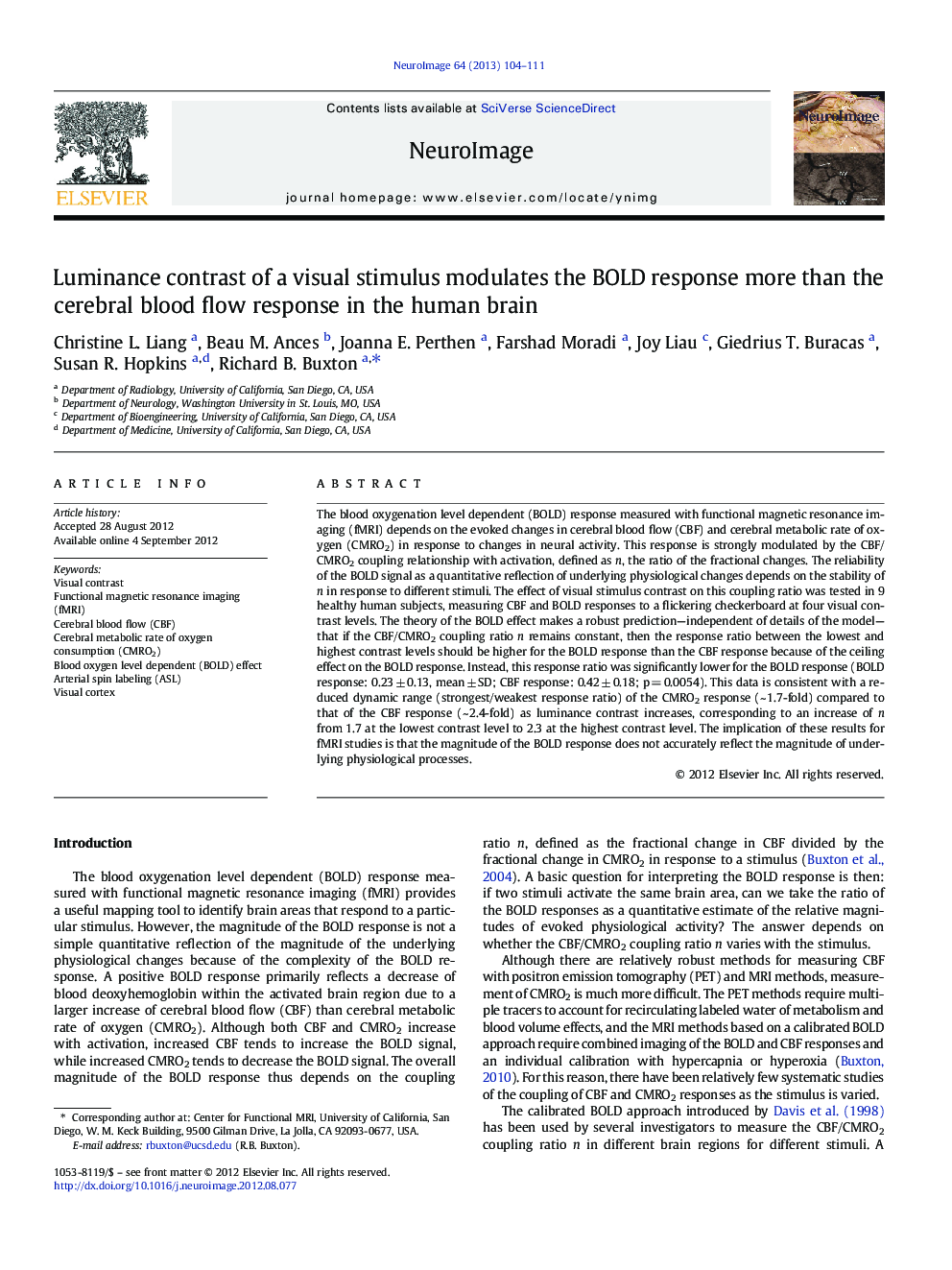| Article ID | Journal | Published Year | Pages | File Type |
|---|---|---|---|---|
| 6030959 | NeuroImage | 2013 | 8 Pages |
The blood oxygenation level dependent (BOLD) response measured with functional magnetic resonance imaging (fMRI) depends on the evoked changes in cerebral blood flow (CBF) and cerebral metabolic rate of oxygen (CMRO2) in response to changes in neural activity. This response is strongly modulated by the CBF/CMRO2 coupling relationship with activation, defined as n, the ratio of the fractional changes. The reliability of the BOLD signal as a quantitative reflection of underlying physiological changes depends on the stability of n in response to different stimuli. The effect of visual stimulus contrast on this coupling ratio was tested in 9 healthy human subjects, measuring CBF and BOLD responses to a flickering checkerboard at four visual contrast levels. The theory of the BOLD effect makes a robust prediction-independent of details of the model-that if the CBF/CMRO2 coupling ratio n remains constant, then the response ratio between the lowest and highest contrast levels should be higher for the BOLD response than the CBF response because of the ceiling effect on the BOLD response. Instead, this response ratio was significantly lower for the BOLD response (BOLD response: 0.23 ± 0.13, mean ± SD; CBF response: 0.42 ± 0.18; p = 0.0054). This data is consistent with a reduced dynamic range (strongest/weakest response ratio) of the CMRO2 response (~ 1.7-fold) compared to that of the CBF response (~ 2.4-fold) as luminance contrast increases, corresponding to an increase of n from 1.7 at the lowest contrast level to 2.3 at the highest contrast level. The implication of these results for fMRI studies is that the magnitude of the BOLD response does not accurately reflect the magnitude of underlying physiological processes.
Graphical abstractIncreasing stimulus contrast increases the coupling ratio of CBF and CMRO2 responses to a visual stimulus.Download high-res image (186KB)Download full-size image
